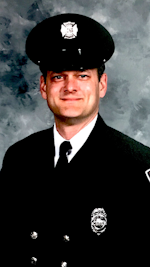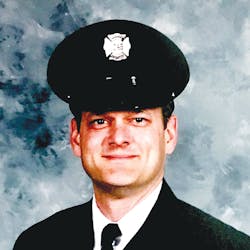In recent years, there has been a more open discussion about firefighter behavioral health. Firefighters are encouraged to reach out for assistance, to check on peers and to feel secure about needing help. What some firefighters might not know, however, is how to tell whether they or someone else has a problem. After all, we aren’t clinicians.
A simple tool that can be used as a starting point to help to determine the need for help calls for you to remember the ABCs—attitude, behavior, cognition—both in terms of evidence of change in those things as well as whether those changes affect the person’s professional or home life. That said, if such changes aren’t detrimental at work or at home, then there probably isn’t any reason to be concerned. However, chances are, if you notice them at the firehouse, then these changes likely are causing problems, and a formal assessment from a clinician should be encouraged.
Attitude
Probably the most significant attitude changes are sudden anger and irritability. Although anger isn’t a disorder, per se, experts say that anger or violent acting out can be related to numerous underlying difficulties, such as depression and anxiety.
Long periods of sadness (two weeks or more) is another red flag. This might be a sign of depression. Similarly, someone who used to get joy from coming to work but no longer seems happy at the station also should cause concern.
A firefighter who used to have a positive outlook but suddenly is negative about everything potentially is suffering from stress-related issues that need evaluation.
This list isn’t exhaustive, but it gives you an idea of what is meant by changes in attitude that affect home or station life.
Behavior
A firefighter who suddenly starts calling in sick or who becomes insubordinate should raise concerns. Isolating behavior and withdrawal from the group are signs that something might be amiss, too. It also is worth noting that at least one theory regarding suicide considers loss of social connection to be one of the elements that leads to a person taking his/her own life.
Violations of your uniform policy in someone who normally is clean-shaven and well-maintained can be considered a change in behavior. The same goes for a situation in which a firefighter who normally is clean cut but starts wearing wrinkled uniforms and begins to emit an odor.
Keep in mind that you’re looking for these changes to the extent that they interfere with home or station life, so a firefighter who forgets to shave or to do laundry occasionally doesn’t apply. We all have bad days and forgetful days.
Cognition
Definitions of cognition include the mental process of knowing, learning and understanding things. We all have heard references to patients who are “alert and oriented to person, place, time and event” or, simply, “alert and oriented times four.” This is the prehospital method to determine whether patients know and understand basics about themselves and their situation.
When a firefighter doesn’t know who he/she is, location, what day it is or what’s happening, he/she needs a clinical assessment. Likewise, firefighters who suddenly start to have difficulty performing simple tasks need an immediate evaluation and, likely, treatment. Although the causes of these cognitive changes might be behavioral-health-related, there might be other causes. For example, stroke, low blood sugar, seizure, overdose, sepsis, hypotension, hypertension and traumatic brain injury can cause deviations in cognition, and they all are significant medical issues. Ideally, firefighters who exhibit changes in cognition will be taken to a medical facility first for a medical screening; they can be transferred to a behavioral-health facility if medical causes are ruled out.
A strong feeling
Although there certainly are in-depth assessment tools, the A-B-C approach is easy to understand and simple to apply, which should give you peace of mind when you try to determine whether a clinical assessment should be recommended.
If you have access to a peer-support program and have questions about the behavioral health of a firefighter, please reach out for assistance. The people in such programs are excellent resources for discussing concerns and can provide much-needed guidance—even intervention.
Regardless, if your gut tells you that there’s a problem, more likely than not, there’s a problem. Listen to your gut.
Brandon Dreiman will present “Firefighter Peer Support: The Nuts & Bolts of Firefighter Behavioral Health Programming” at Firehouse Expo. To register, visit firehouseexpo.com.

Brandon Dreiman
Brandon Dreiman is a captain and 22-year veteran of the Indianapolis Fire Department, where he serves as the coordinator of firefighter wellness & support. He also is an International Association of Fire Fighters (IAFF) Peer Support & Resilience Master Instructor and serves on the IAFF’s Crisis Response Team. Dreiman is a cognitive behavioral therapy for insomnia (CBT-I) clinician, a Certified Sleep Science Coach, a Certified Addiction Peer Recovery Coach and a yoga teacher. He is the founder of Naptown Yogawalla.






